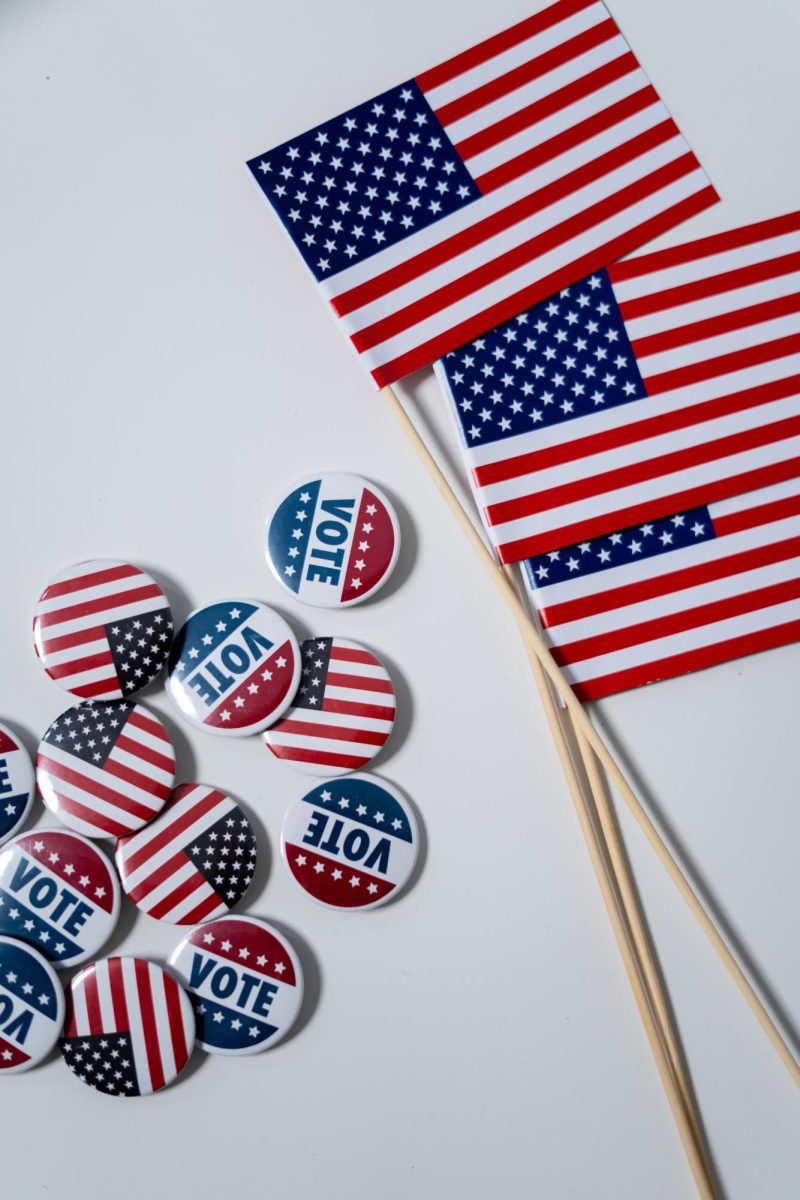In the first primary debate of the 2024 election season, on Aug. 23, 2023, eight Republican candidates debated over key issues in Milwaukee to try to earn the 2024 nomination, with new players in the race gaining attention.
The eight candidates who met Republican National Committee standards, Florida Gov. Ron Desantis, entrepreneur Vivek Ramaswamy, former Vice President Mike Pence, former South Carolina Gov. and UN ambassador Nikki Haley, South Carolina Sen. Tim Scott, former New Jersey Gov. Chris Christie, former Arkansas Gov. Asa Hutchinson and North Dakota Gov. Doug Burgum took the stage to advocate for why they should be the GOP nominee in 2024. However, one of the main focuses of the night was not in attendance.
Described as the elephant not in the room, former President Donald Trump opted not to participate due to his large lead in the polls, instead airing an interview with former Fox News host Tucker Carlson on X, formerly known as Twitter. He took the opportunity to criticize his opponents on the debate stage and tout his accomplishments as president.
Pleasant Valley English teacher Lynne Lundberg believes that Trump’s absence could be helpful but also an uncertainty for voters, depending on how they look at the issue. “Given the reality that Trump can run but no one knows whether he’s going to be a viable candidate given the court cases…Trump not being in the debate is a clarifying factor, people can formulate positions based on him not being in the race,” she expressed.
Looking at Trump’s absence from a candidate’s point of view, Pleasant Valley Senior Nathan Musal believed it lessened the credibility of the debate. “Trump’s absence clearly hurt the credibility of the other candidates, and that was almost certainly part of his rationale for the move. I think his reasoning is twofold: there is the simple fact that he stands the most to lose from a bad debate performance, so why risk messing up, but, given his huge lead in Republican polling, not attending the first debate makes it feel like a sort of side-show and runner-up contest,” he conveyed.
Despite Trump not being in attendance at the debate, he was still a large part of it. When asked whether the candidates would support Trump as the nominee, seven of the eight raised their hands, some reluctantly.
The debate was also an opportunity for familiar faces to cement themselves in the race and newcomers to share their ideas. Florida Gov. Ron Desantis, second in polling to Trump, focused on his plans for turning the economy around and securing the border.
Some of the more hot button issues involved newer candidates. Former UN ambassador and South Carolina Gov. Nikki Haley and former Vice President Mike Pence sparred over abortion. While both declared themselves pro life, Pence pushed hard in favor of a 15 week federal ban while Haley called for consensus on the issue, recognizing the difficulty of such a law to pass a divided congress.
Entrepreneur Vivek Ramaswamy tried to differentiate himself from the rest of the crowd, claiming he was the only candidate not bought and paid for by donors and political action committees. However, he also took criticism for his lack of political experience. Pence said that now is not the time for “on the job training” and Haley called him out for having no experience with foreign policy, a topic she is an expert in.
When it comes to policy, Lundberg is hopeful that the 2024 election season focuses most on decisions that better the wellbeing of our country and less on the changing culture. “I would hope that the Republican candidates can say less about culture wars and more about policy decisions. I would like to see both parties lead on that,” she said.
As usual, the debate also included the personal attacks that one might expect after watching the debates of 2016 and 2020. Ramaswamy was again the head of criticism when former New Jersey Gov. Chris Christie said that he was sick of listening to “a guy who sounds like ChatGPT.” However, Ramaswamy had attacks of his own, accusing the other candidates of having “pre-prepared slogans.”
Finally, despite the issues with former President Trump looming large, the candidates attempted to look to the future. Moving past Trump’s legal battles as one of the main topics of discussion in the debate, Desantis described how Republicans must move on from Jan. 6, 2021, and instead focus on Jan. 20, 2025, when a new president is elected.
Even early in the election season, the first Republican debate laid the groundwork for what is shaping up to be a very interesting presidential election. The next debate is set for Sept. 27, 2023 in California at the Ronald Reagan Presidential Foundation and Institute. The official candidate lineup has not been released.
Musal had some final thoughts about the future of the race and who he thinks has the best shot at winning. “Despite the importance of policy, it really seems that the outcome of this race will be determined by the outcome of Trump’s legal challenges. If Trump is acquitted in all of his legal battles in a timely fashion then I see little chance for a different candidate to win the nomination. If Trump’s ability to be on the campaign trail is significantly affected or he faces jail time, then I think the race is between Ron DeSantis and Nikki Haley,” he stated.
No matter who the Republican nominee is, they will likely face Democratic incumbent President Joe Biden in the 2024 general election.










Jackson Peer • Sep 17, 2023 at 12:41 pm
I was very surprised to not see former President Donald Trump at the debate.